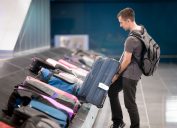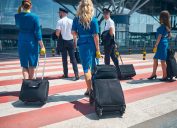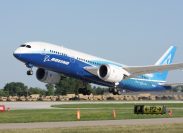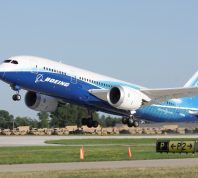Major Airlines Are Getting Stricter When It Comes to Your "Personal Item"
Passengers are getting pushback on their carry-on baggage.
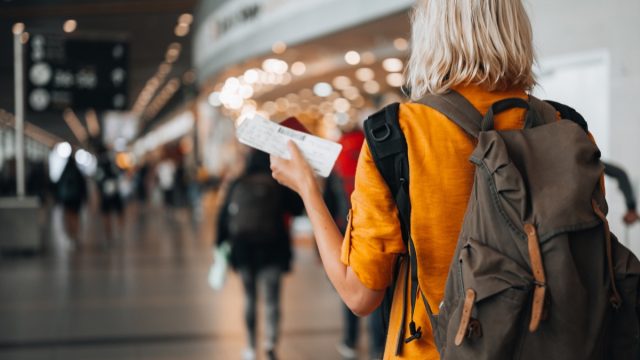
Airlines have been adding fees at every turn for as long as we can remember, making air travel a much more expensive prospect than it once was. In turn, travelers are trying to cut costs wherever possible. Social media hacks have shown people attempting to avoid paying for checked baggage by stuffing empty pillowcases and stocking up on shopping bags. But your ability to stretch your on-board baggage allowance might be reaching its breaking point. Recently, passengers have reported getting more pushback from carriers on what they're carrying onto flights. Read on to find out how major airlines are getting stricter when it comes to your "personal item."
READ THIS NEXT: Southwest Is Finally Changing the Way It Boards Flights.
More travelers are trying to avoid checking bags.
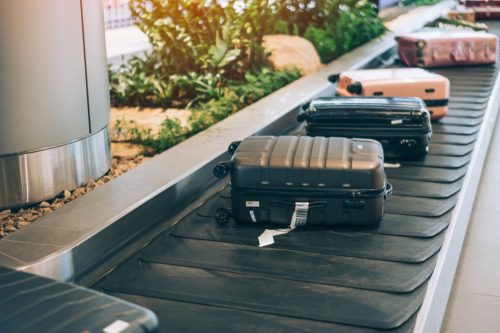
Horror stories surrounding lost luggage amid flight delays and cancellations have left an impression on air travelers. According to the latest data from the Bureau of Transportation Statistics (BTS), nearly 2 million bags were mishandled by U.S. air carriers in 2021 alone. And airline disruptions have only become more common since then, as a Sept. 2022 survey from travel planning company TripIt found that nearly 60 percent of travelers reported experiencing some interruption in their flight plans over the last year.
Of those people, 1 in 6 people said their luggage was lost or delayed due to the disruption. As a result, almost everyone is planning to change the way they approach flights in the future: Ninety-three percent of respondents say "they'll plan differently for their next trip," according to TripIt. This includes 41 percent of people who are now trying to avoid checking a bag when flying.
If you do want to get by with just your cabin luggage, however, be aware that airlines are starting to take a stricter approach to what they're allowing on board.
Passengers are now experiencing pushback over their "personal items."
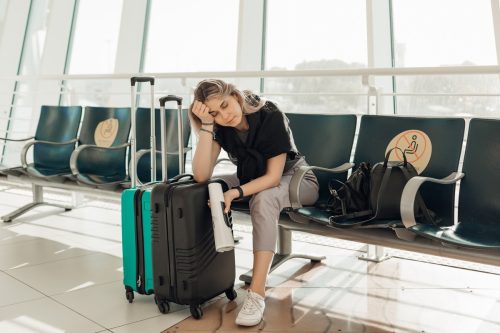
As fewer people are checking bags for flights now, you may also find it harder to pass off certain things as personal items.
Sergio Diaz, a professional speaker from Los Angeles, told The Washington Post that an American Airlines gate agent made him pay $50 to check his "personal item," which was a projector he uses for his keynote presentations. Despite Diaz telling the newspaper that the projector is "not much bigger than a laptop," the airline employee ruled that it was too big to fit under the seat so it had to be checked.
"I thought it would be fine," he said.
A similar situation occurred with a Frontier passenger who posted a TikTok on Feb. 4 claiming that an airline gate agent tried to make her pay $99 for her personal item. In the now-viral video, user @dejatheexplorer showed that her suitcase from Take Off Luggage—which she was using as her allotted personal item—fit inside the dimensions of Frontier's personal item box checker.
"They can't charge me if it fits," she captioned the video.
In the comment section, other travelers said they've experienced the same problem. "Frontier almost made me pay $100 for [a] carry on because my small backpack was slightly bulged in the front pocket," one user responded. Another added, "Frontier tried me too and my bag fit right inside."
RELATED: For more up-to-date information, sign up for our daily newsletter.
Airlines have different sizing rules when it comes to personal items.
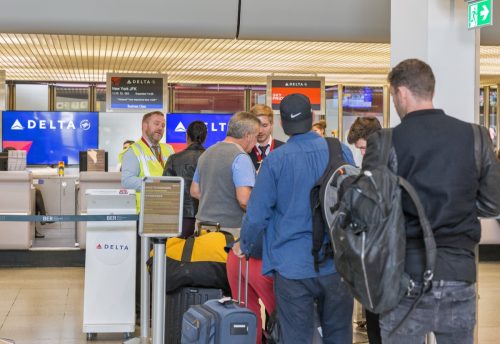
Most airlines allow passengers to bring a personal item on board for free to store under the seat in front of them during the flight. But there is no set standard for the size this bag can be.
As it turns out, most major U.S. airlines have "different, and sometimes confusing, definitions" for personal items, The Washington Post explained. American and Frontier Airlines limit the size of a passenger's personal item to 18 x 14 x 8 inches, while United caps it at 17 x 10 x 9 inches, and Southwest restricts anything larger than 16.25 x 13.5 x 8 inches, according to Clever Journey.
Meanwhile, both Alaska Airlines and Delta Air Lines have no specific size or weight restrictions on their flights. Alaska just states that your personal item "should be stowed under the seat in front of you," while Delta similarly notes your item should "fit underneath the seat in front of you." The two carriers indicate that a passenger's personal item is usually considered to be something like a purse, briefcase, laptop bag, camera bag, or diaper bag.
"Pick an item like this or of a similar size to store beneath the seat in front of you during your flight," Delta suggests in its guidelines.
These policies are letting airlines to get stricter with what they accept.
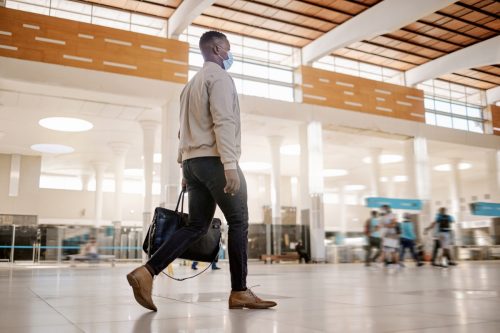
The difference in personal item sizing across carriers can partly be attributed to the fact that they fly different types of aircrafts, so certain seats might have more or less room to store baggage underneath, The Washington Post reported. But these "vague definitions" may also be used as a way for airlines to reject personal items and ask passengers to pay for them instead.
"The definition of a personal item is subject to interpretation," Danielle Belyeu, a travel adviser with South Carolina-based travel agency Catching the Sun, told The Washington Post.
Now, experts say carriers are having employees exercise stricter interpretations in an effort to collect more money for baggage. And discount airlines appear to be cracking down more than others.
Katy Kassian, a small-business owner from Max, Nebraska, told The Washington Post that "at least a full quarter of the people boarding the plane had to gate-check their bags at great expense" on a Frontier flight she recently took from Denver to Sacramento.
Jennifer de la Cruz, a spokeswoman for Frontier, confirmed to the newspaper that the carrier can and will impose fees on bags, even if they fit underneath a plane's seats.
"Whether a bag fits under the seat is not the determining factor as to whether it qualifies as a personal item," Cruz explained. "It must fit the required dimensions and fit into the sizer in the gate area."
